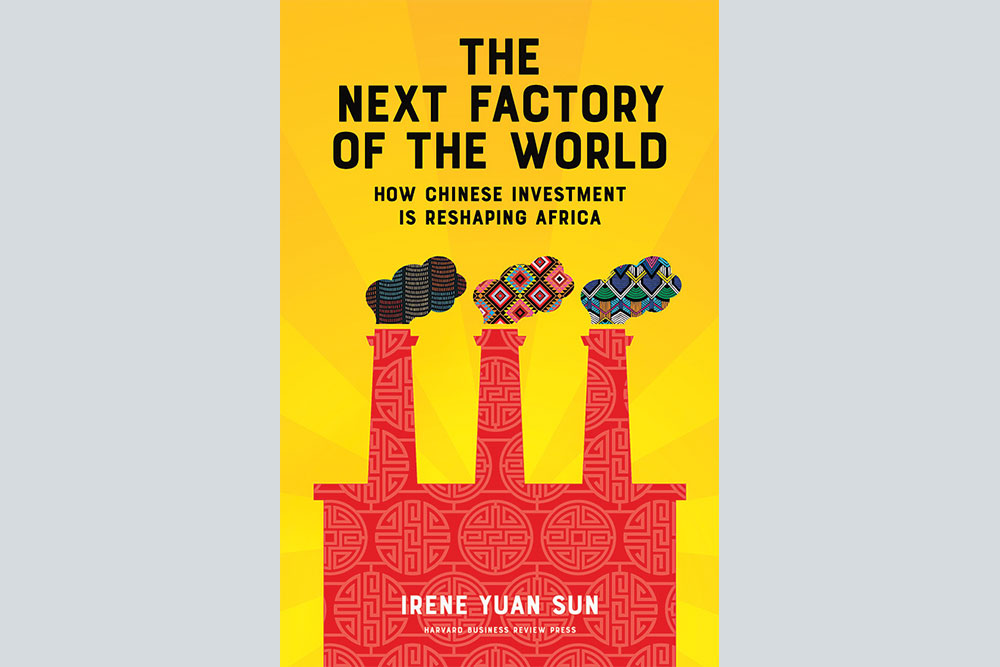When Lawrence Tung met me at the reception desk, I thought he was an assistant or maybe the receptionist who had stepped away for a moment, not the boss himself. His slight frame was engulfed in an oversize Abercrombie polo shirt and a pair of baggy, dark-gray jeans. He led me to his office, showed me to a seat, and took his place behind a massive wraparound desk. His thick black hair was overgrown and stuck out perpendicularly from his scalp. As he settled in behind the desk, he called to mind nothing so much as a teenager in his father’s office.
Despite his youthful appearance, Lawrence is actually the executive director and third-generation owner of Wempco, one of the largest privately held firms in Nigeria. His family came to Nigeria fifty years ago from China via Hong Kong. Their factories churn out wood products, smelted and rolled steel, and ceramics. The family sends its kids to be educated in Hong Kong and the United States—Lawrence is a Wharton grad-but by and large they live and work in Nigeria. A few years ago, Lawrence even renounced US citizenship in favor of Nigerian citizenship. As he explained, “We’re here for the long run. This is our second home.”
Lawrence’s family history is a reminder that now is not the first time Chinese industrialists have landed in Africa.* Nor is it the first time Africa looked like it might industrialize. There’s nothing easy about the process, and it's not a sure thing today, just as it wasn’t fifty years ago. When the Tungs and other eager Chinese industrialists showed up in the 1960s, Africa seemed poised for take-off, with government policies emphasizing industrial sectors, a small but promising industrial base left behind by European colonizers, and a general sense of optimism from being newly independent. But the following years brought devastating shocks: a macroeconomic crisis, worsening government corruption and ineptitude, and increasingly fierce global competition. In Nigeria, two of the four big Chinese family-run industrial firms collapsed. As a whole, Nigeria—and the rest of Africa-deindustrialized.
But the lessons of history run both ways at once. Even in the face of headwinds, there is often a way to do business. The remaining two family-run firms not only survived, but thrived. Macroeconomic conditions have been better in the past fifteen years than in previous decades across many parts of Africa, and that has attracted hundreds of new Chinese manufacturing investments. The Tungs and other old-timers know that conditions are always temporary, that another downturn could come any time, yet they are confident in their ability to do business in Africa for generations to come. Macroeconomics is important, but it is not destiny. The decisions of companies and individuals still matter, and sometimes they make the difference between adversity that kills a business and adversity that sharpens it into the best in the world.
The best in the world—in Africa. This is not an exaggerated ambition, and despite the history of the past fifty years, during which Nigeria seemed to thwart its own chances for industrialization, it doesn’t seem far-fetched to Lawrence. In the middle of our conversation, he described how his family has branched out in recent years into the hospitality business. While factories are still the heart of their enterprise, they’ve opened a luxury hotel in Lagos, Nigeria’s largest city. “The brief that we gave the chef at our hotel was to create a there’s nothing like that today in Nigeria, so it’s very difficult.” Yet he looked unfazed. “We have been here for fifty years.”
This is an extract from Irene Yuan Sun’s The Next Factory Of The World published by Harvard Business Review Press.











